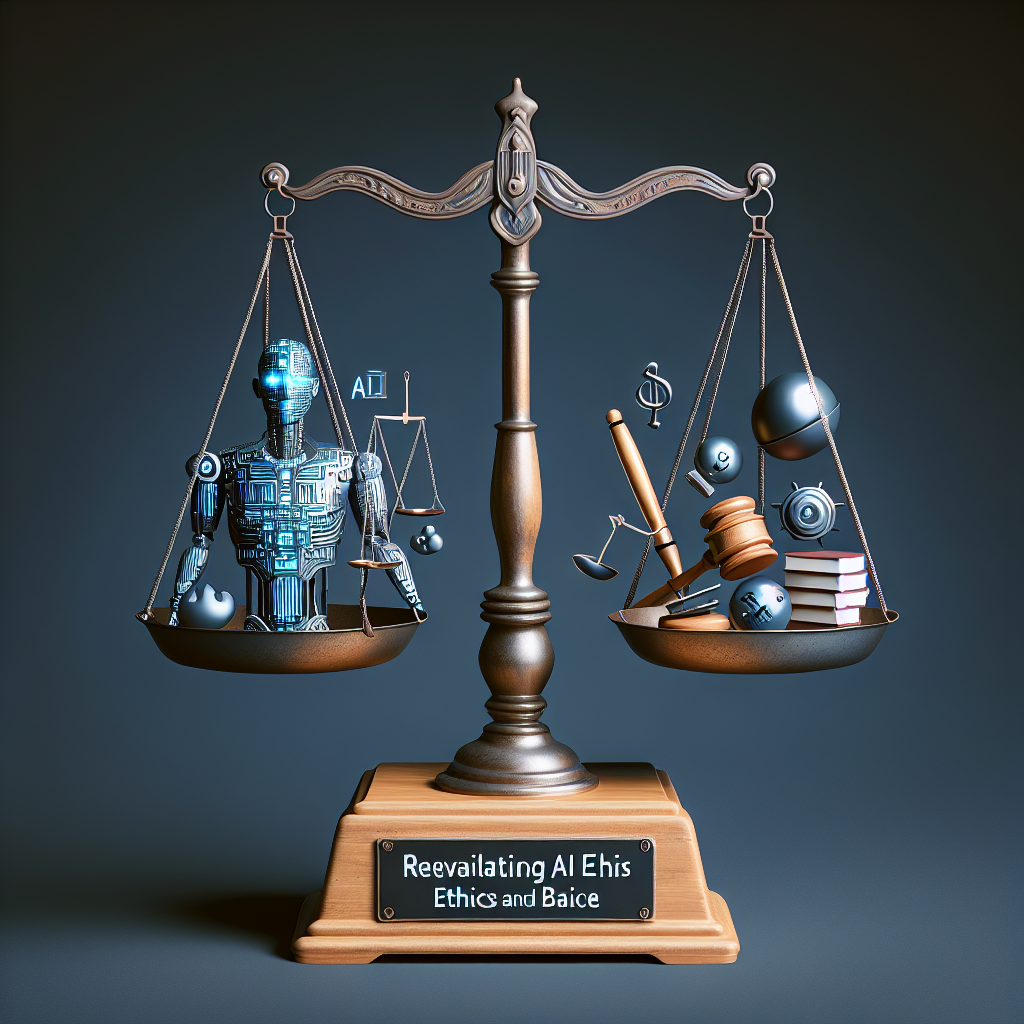Artificial Intelligence (AI) has revolutionized numerous industries, from healthcare to finance, bringing forth unparalleled efficiency and innovation. However, with these advancements come rising concerns about the ethical implications and biases that can infiltrate AI systems. As we leverage the capabilities of AI, it’s vital to reevaluate and adjust our strategies to ensure fair and ethical outcomes.
Understanding Bias in AI
At its foundation, AI functions based on algorithms that are trained using extensive datasets. If these datasets reflect pre-existing societal biases—whether linked to race, gender, age, or socioeconomic factors—AI systems may unintentionally maintain and even amplify these biases. This issue has raised significant concerns across various fields:
- Hiring Practices: AI-based recruitment tools can inadvertently favor candidates from specific demographics, reducing workplace diversity.
- Criminal Justice: Predictive policing algorithms have faced criticism for disproportionately targeting minority communities while neglecting systemic issues.
- Healthcare: AI technologies used for disease diagnosis may overlook conditions that are common in underrepresented groups, resulting in healthcare disparities.
Understanding that biases can infiltrate the very core of AI systems is crucial for building trust and accountability in their implementation.
Ethical Frameworks for AI Development
To effectively confront the challenges posed by bias, a thorough ethical framework should be woven into the AI development process. This framework can be organized around several fundamental principles:
-
Transparency: Organizations ought to aim for clarity regarding how AI systems function and their decision-making processes. This transparency enables scrutiny and builds public trust.
-
Accountability: Developers and organizations must be held responsible for the effects of their AI systems. Implementing strong auditing and oversight mechanisms can ensure compliance with ethical standards.
-
Inclusivity: Engaging diverse stakeholders during the design and testing phases can help reduce bias. Representation is vital, and including voices from various backgrounds can lead to fairer AI systems.
- Fairness: Making fairness a core principle in AI development involves ongoing assessments to detect and correct biases, committing to continuous improvement.
Practical Approaches to Mitigating Bias
-
Diverse Data Practices: Developing datasets that encompass a broad spectrum of perspectives and experiences is essential. This can mean enhancing existing datasets or proactively sourcing data from underrepresented groups.
-
Bias Detection Algorithms: Utilizing tools and methodologies to identify and assess bias within AI systems can help uncover potential issues prior to deployment.
-
Stakeholder Engagement: Frequent consultations with community representatives and experts can yield valuable insights into possible biases and ethical dilemmas.
- Education and Training: Providing developers and stakeholders with training on ethical AI practices can foster a culture of awareness regarding biases and their impacts.
Legal and Regulatory Considerations
As AI technologies continue to evolve, the demand for ethical regulations is increasingly urgent. Governments and regulatory agencies are starting to implement guidelines for AI usage. Legal frameworks should focus on:
- Data Protection: Ensuring the safety of individuals’ data from misuse and protecting privacy.
- Algorithmic Accountability: Requiring organizations to reveal their algorithms’ functioning and how they address bias.
- Remedial Measures: Creating channels for individuals to voice concerns regarding AI outcomes, ensuring pathways for accountability.
The Road Ahead
Finding a balance between AI ethics and bias is a challenging endeavor; it necessitates a coordinated effort among developers, organizations, policymakers, and society as a whole. As we progress, maintaining an ongoing dialogue and collaboration among stakeholders will be critical. The objective is to develop AI systems that not only drive efficiency and innovation but also uphold principles of justice and equity.
Ultimately, reassessing AI ethics and bias is not merely a technical issue—it is a societal necessity. By prioritizing the ethical development of AI, we can forge a future where technology acts as a means of empowerment rather than oppression.

